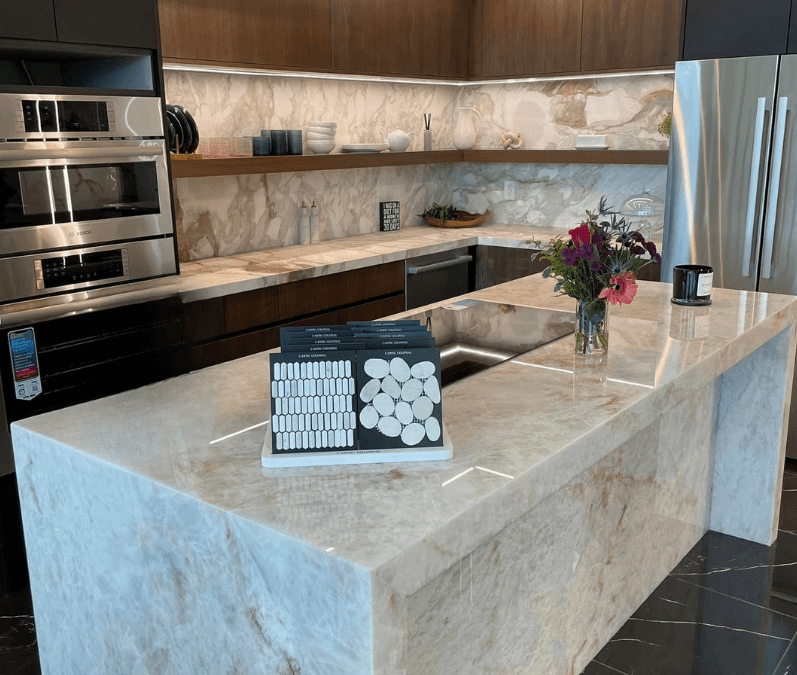Kitchen countertops do more than give you a place to chop vegetables. They shape how your kitchen looks, feels, and functions every single day. Picking the right surface takes more than choosing a pretty color or texture. It’s a decision that affects everything from meal prep to cleaning routines to how the space feels when friends stop by.
If you’re planning a kitchen update or starting from scratch, the countertop is one of the first things you’ll want to focus on. Before you start shopping, here are the most important things to keep in mind.
Think About Your Daily Routine
Your kitchen should fit how you live. Your habits matter when choosing a countertop. Do you cook often? Do you handle hot pans a lot? Do you clean up quickly, or does the mess sit for a while?
If you move constantly between cutting, cooking, and cleaning, pick a surface that stands up to everything. For busy homes, quartz or certain types of granite resist stains, scratches, and heat. They handle daily wear and tear without showing damage.
Families with children often choose low-maintenance materials. These wipe clean easily with a damp cloth. Smooth surfaces with fewer seams speed up cleanup, too.
Match the Style of Your Kitchen
Your countertop should complement your cabinets, flooring, and backsplash. It doesn’t need to match every piece, but it should fit the overall design.
For example, soft white quartz pairs well with warm wood cabinets and a tile backsplash. If you have dark cabinetry, a lighter stone creates contrast and brightens the space.
Designers mix textures and tones to make a space more inviting. When your kitchen feels flat, a textured countertop adds interest without bold colors.
A professional design consultation lets you see samples in person. You get a better sense of how light, color, and material interact in your space.
Understand the Maintenance Requirements
Not all countertops need the same level of care. Some need regular sealing. Others can get stained by wine, oil, or even water if you’re not careful.
Here’s a quick look at how common materials differ:
- Quartz: Non-porous and easy to clean. Doesn’t need sealing.
- Granite: Durable, but most types need sealing to resist stains.
- Marble: Classic look but more delicate. Susceptible to etching and staining.
- Butcher Block: Warm and inviting. Needs oiling to stay in good shape.
When working with a designer, you can explore options that fit both your lifestyle and how much upkeep you’re willing to do. That saves you from surprises later on.
Don’t Forget the Budget
Countertops come in a wide price range. Natural stones tend to cost more, especially if you want a unique slab. Engineered materials are often more affordable, with consistent color and pattern options.
Installation can add to the cost, especially with materials that are heavy or need custom cuts. That’s why getting a detailed estimate up front helps you stay on track. During a design consultation, you can see side-by-side options at different price points, helping you make the right call without overspending.
Explore Material Samples In Person
Photos can’t show the full story. A stone that looks one way on screen can appear completely different under your kitchen lighting. Texture also plays a role. Matte finishes feel different than polished ones, and they reflect light differently, too.
Visiting a showroom or scheduling a design consultation helps you get hands-on with samples. You can touch the surface, see how it reacts to light, and place it next to your cabinet colors or flooring choices. That kind of in-person experience makes a big difference when deciding on a countertop that fits your space.
If you’re ready to choose the perfect kitchen countertops, trust the experts at Clara Napolitano to guide you. Schedule your design consultation today and start creating a kitchen that fits your style and daily needs.
Sign up for our newsletter to stay inspired with the latest flooring and cabinetry solutions for your home and commercial space.


